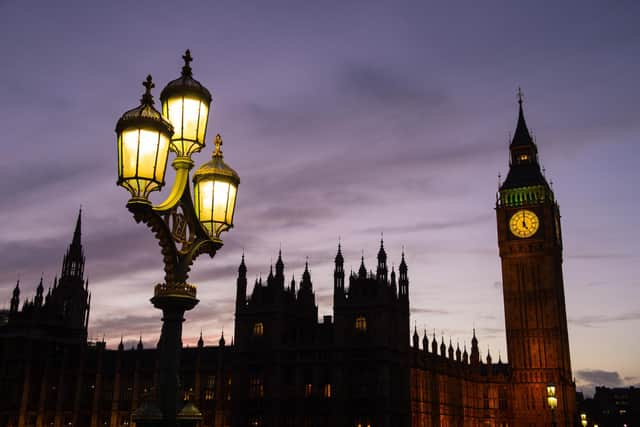What is the Internal Market Act? How has it impacted the Scottish Government? What impact has it had on deposit return scheme?
Passed amid accusations of a “power grab” by the SNP, the Bill was first introduced by the UK government to prepare for the end of the Brexit transition period.
Leaving the European internal market meant losing the rules of it, so the Bill was designed to ensure the free movement of goods, services and recognition of professional qualifications once those rules no longer apply.
What is the Internal Market Bill meant to achieve?


Advertisement
Hide AdAdvertisement
Hide AdMinisters say it allows goods or services sold one in part of the UK to be sold anywhere else as well, without having to comply to local rules.
The legislation’s controversy is not in this, but instead its impact on devolved institutions. Scottish ministers argue it is a deliberate attempt to destroy devolution and undermine Holyrood, saying it has allowed the UK Government to essentially veto policies it doesn’t agree with, on areas that are supposed to be devolved.
For example, the ban on single use plastics was allowed, but the Scottish Government required permission from the UK Government first. When the Scottish Government brought its deposit return scheme, it was not so lucky, with Westminster reserving the right to approve.
Policies such as a proposed alcohol minimum pricing expansion, an act its Government could believe would improve public health, a devolved area, are considered at risk, with one Scottish minister telling The Scotsman it would be blocked by the UK Government.
Why has the Act created conflict between the Scottish and UK governments?
Scottish Government figures view the Act as the UK Government dictating policy, essentially being “judge and jury” over what Scotland can do. Sources point to how the EU common rules were made by consent, whereas both Holyrood and the Senedd voted against it. A Scottish Government report even described it as "one amongst a series of continued provocations to devolved power".
The UK government would reject this view, arguing the Internal Market Act is a safety net, ensuring the smooth operation of trade. Instead of an attack on devolution, the Scotland Office views the Bill as part of it. They would argue EU rules were part of devolution, and under that system the Scottish Government still did not have complete control of things like agriculture, it was still guided by EU rules, and this is a natural replacement.
They believe divergence is deeply damaging for the UK market, which is vital for Scotland’s economy, which does 60 per cent of its trade with the rest of the UK.
What other powers linked to the Act are controversial?
Advertisement
Hide AdAdvertisement
Hide AdAnother controversial power is the ability it gives the UK government to spend in devolved areas, meaning buildings or roads that may have previously used EU funding, are now paid for by Westminster. This gives ministers the power to invest directly in Scotland, something they say they’d like to be collaborative, and is about working together.
One area where this has already seen the benefit of this is the A75. While Scottish ministers were initially hostile to the idea, the two governments are now believed to be moving closer to working together on a feasibility study, something that also happened on freeports.
The Bill is a contentious issue and, despite the UK Government, is still viewed by the SNP as being less about working together and more being told what to do.
Comments
Want to join the conversation? Please or to comment on this article.
